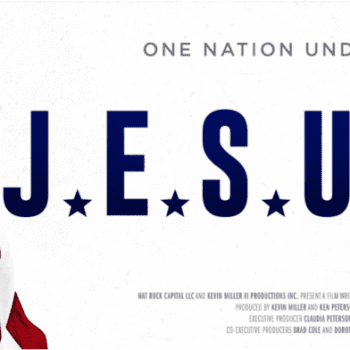 Yesterday was Armistice Day, but most of the nation celebrated it as Veteran’s Day. It was also the 1-week anniversary of the death of René Girard. I spent the day thinking about how appropriate it is to remember Girard on a day that we think about matters of peace and violence and ritualized patriotism. It is also appropriate to remember Girard on a day that we traditionally ignore our scapegoats and victims (as we do every day, but egregiously so on a day that we honor the valor of our own soldiers).
Yesterday was Armistice Day, but most of the nation celebrated it as Veteran’s Day. It was also the 1-week anniversary of the death of René Girard. I spent the day thinking about how appropriate it is to remember Girard on a day that we think about matters of peace and violence and ritualized patriotism. It is also appropriate to remember Girard on a day that we traditionally ignore our scapegoats and victims (as we do every day, but egregiously so on a day that we honor the valor of our own soldiers).
How do we recognize a day commemorating the end of World War I in an era when wars no longer end?
Many no longer do. Many no longer recognize the day as a day to honor peace, reconciliation, and laying aside of arms. Instead, we honor soldiers and veterans, thanking them for their service. And even most committed pacifists hesitate to say anything to question the mood of patriotism and honor that permeates the air. I personally fantasize about the day when conscientious objectors and civil servants who cross the line for peace will be recognized as veterans are in school assemblies, but I don’t yet dare advocate for such things at PTA meetings.
We are caught up in the mimetic phenomenon of triumphal militarism that has engulfed our nation. We have been at war for 14 years and counting, with no end in sight. Yet we are largely removed from our wars, removed from the land and bodies blown apart, the weeping and wailing, the orphaned, the parents clutching the maimed or dead bodies of their children. We watch refugee crises from afar with an ocean to buffer us, allowing us to watch long enough for pangs of humanity to remind us that we are good people, sensitive to suffering, before we turn away again. In this context of war that never ends but never touches most of us (at least, not in ways we usually perceive) we celebrate soldiers without feeling the palpable yearning for peace that might compel us to join the voices around the world shouting “Enough!” We celebrate the soldiers without understanding their missions or the effects they have on the world. To question war would be to question our soldiers and the myth of righteous violence that, theoretically, makes us safe, gives us freedom, and defeats evil.
The irony of Veteran’s Day, however, beyond the way it came to overshadow Armistice Day, is that in glorifying our veterans we largely overlook the fact that our culture of militarism lies about the horrors of war and sacrifices soldiers and veterans on the altar of this lie. While flags wave and hearts beat to the sound of patriotic drums, it is easy to let rhetoric about “honor” and “duty” mask the true causes of war — greed, lust for power, ego – to which soldiers and countless civilians are sacrificed. We may know that war is hell, but our identity as good and noble depends on honoring it as justified and necessary, even compassionate. It is a force for liberation and justice, we convince ourselves. Thus many soldiers enlist with the noblest of intentions: to serve, to protect, to honor the country they love and bring freedom to less-fortunate countries. And then they go to fight “terrorists” with no uniforms, who look just like the people they are trying to liberate, and the dehumanization of the “enemy” becomes the dehumanization of the whole population.
One cannot dehumanize another without losing a part of one’s own humanity. But this applies not only to soldiers but to all of us who cheer on a culture of war that masks the most horrific and wide-spread destruction behind a veneer of valor. Many veterans and the families who love them have seen past this veneer in a way that the rest of us, myself included, have not. Many veterans suffering from post-traumatic stress disorder are putting their broken selves back together with pain and suffering. We “honor” them without acknowledging the full depth of their suffering, because our culture refuses to acknowledge the full horrors of war.
And the veterans we glorify number among the unseen victims of our wars. According to statistics, at least 18 veterans commit suicide every day.
As many as that number is, it is a tiny fraction of those whose lives are destroyed by war.
We don’t think of our veterans as scapegoats, though. We glorify them; we don’t demonize them. Yet in failing to tell the truth about war, we do to soldiers what we do to scapegoats – we destroy them. In sending them out to fight our scapegoats, in redeploying them over and over to kill an enemy that can never die because it is not a person but an idea (“terrorism”), in shielding ourselves from the horrors that they have to see and experience, we are guilty of their blood. As we are guilty of the blood of all the people we send our soldiers to kill.
Yet in an era in which drones in the sky are increasingly replacing boots on the ground, it might be argued that we are honoring the lives of our soldiers by keeping more of them out of harm’s way. Although we have special operations forces deployed in 135 countries, warfare is increasingly becoming depersonalized. Yet drone pilots, like soldiers on the ground, feel in their souls the consequences of taking life, and many commit suicide. While those of us far from any battlefield, whether actual or virtual, may go about our days ignoring the victims of our empire building, the soldiers who pull the triggers and press the buttons must either shut down a part of their humanity or bear the pain of killing. While we can ignore the egregious lie that any military-aged male is automatically an enemy if he happens to be killed, while we can ignore evidence that the vast majority of those killed in strikes are not the intended targets, soldiers must either internalize such a gross dehumanization or face the horrible truth. We do no one any favors by ignoring that truth and thus perpetuating the deaths of innocents and the erosion of all of our souls.
The ritualized patriotism that washes our culture in an irresistible flood of self-righteousness, convincing so many of us of our “exceptionalism,” drowns conscience and cries of pain. Those who have studied Girard should not fail to see echoes of his prophetic warnings about the depth of human violence and our capacity to hide it from ourselves. Girard also warns us about our blindness to our victims. When wars are kept out of site and largely out of mind, except to glorify those who do the actual work of killing that a majority of our tax dollars pay for, we are blind not only to the victims we create abroad, but also to the victimization of our soldiers here at home. Girardian wisdom reveals to us the terrible violence our war culture does to everyone. And it warns us that the wars we create are destined to continue indefinitely until they destroy us all, unless we repent and turn ourselves completely around.
We must turn Veteran’s Day back into Armistice Day, and celebrate a permanent armistice, a cessation of war once and for all. To do so, we must face and tell the truth about war. To kill is not to serve and protect; it is to create enemies and destroy one’s soul. We should continue to honor the courage and discipline of soldiers who put their lives on the line, but we must convert the mission from conquest and violence to reconciliation and peacemaking, and we must lift the burden of the few by stepping up and taking our part. Beating swords into plowshares, transforming weapons into tools of cultivation, means transforming our whole culture with mercy and compassion. This crucial work starts in each of our hearts, and it must start now. As Girard says, “Either we are going to love each other, or we are going to die.”
Image: Let Us Beat Swords into Plowshares, a sculpture by Evgeniy Vuchetich, available on Wikimedia Commonsvia Creative Commons Attribution-Share Alike 3.0 Unported license.
Stay in the loop! Like Teaching Nonviolent Atonement on Facebook!











